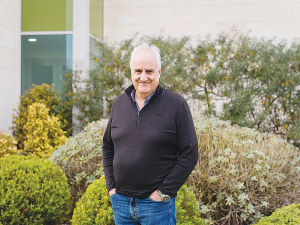Livestock can be bred for lower methane emissions while also improving productivity at a rate greater than what the industry is currently achieving, research has shown.
This month AgResearch scientists presented their analysis to the joint New Zealand Society of Animal Production and New Zealand Grassland Association conferences in Oamaru, which challenges assumptions from critics that breeding for a low methane trait will be at the expense of key genetic traits for productivity.
The scientists drew on data from a performance recorded sheep flock maintained by AgResearch, which is also recorded for methane emissions, compared to average dual purpose sheep on a NZ production index incorporating reproduction, survival, growth and adult size traits.
“We investigated if the rate of reduction in methane emissions that has been seen in our low methane flock over the past six years was sufficient to achieve New Zealand’s targeted methane reductions by the year 2050,” says AgResearch scientist John McEwan.
“Assuming the rate of methane reduction of 0.95% per year as has been shown in the flock so far will be maintained, and accounting for the genetic lag for use of rams in commercial flocks, the result we reached was a 27% decrease in commercial flocks methane emissions by the year 2050, while increasing per head productivity (using the current Beef + Lamb New Zealand Genetics index) by $51.80.”
The current New Zealand target is to reduce biogenic methane emissions by 24 to 47% below 2017 levels; however, the methane targets are currently being reviewed. Productivity gains are also in the sights of the Government, with a goal of doubling exports by value within a decade. “Continuation with current industry progress would achieve a 2.8% reduction in methane emissions and $30.80 increase in per head productivity.
In other words, methane emissions can be reduced while also increasing productivity faster than current industry progress,” McEwan says. “While our analysis does not account for all factors, it does suggest that genetic selection, if appropriately applied, could contribute a substantial proportion of the currently proposed reduction in methane emissions from the sheep industry. And it can be done without any change in ewe numbers.
“The fact that these results have been obtained from a B+LNZ Genetics recorded flock and using the current industry breeding evaluation system adds strength to the fact that this is possible using existing industry tools available to all New Zealand breeders. The challenge is its rapid adoption by the industry.”



















